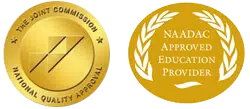If you’re seeking drug or alcohol addiction treatment, you likely have heard about Cognitive Behavioral Therapy, or CBT, as part of individual therapy treatment. This is a popular psychotherapy form used for numerous mental health concerns. As an evidence-based treatment, it has plenty of research to support its application.
What is CBT?
The thought process behind Cognitive Behavioral Therapy is that our thoughts affect our emotions, which, in turn, may dictate our behaviors. For example, you may think that if you attend a party that no one will want to talk to you, so you feel emotions like anxiety or defeat because of these thoughts. Because of this, you decide not to go to the party. This formula:
- Thought ->
- Emotion ->
- Action
Is where CBT differs from other types of therapies, which seek first to deal with the client’s feelings, rather than the thoughts that produce the emotions. While this approach may help clients recognize and address their emotions and feel less anxious at first, proponents of cognitive behavioral therapy believe that addressing thoughts first, then emotions is more effective. It’s a straightforward approach, and many people can easily learn the process of identifying a thought that produces an emotion.
For people struggling with drug or alcohol addiction, it’s important to focus on the thoughts that lead to emotions and behaviors (drinking or using), as there may be several thoughts that twist together to contribute to an emotional response to use.
How Does CBT Work?
CBT’s aim is breaking the link between the thinking process (cognition) and the behavior that follows (the action prompted by the thoughts and feelings the thoughts produce). When conducted regularly, CBT therapists can help their clients learn to monitor their thoughts, understand them and how and why they arise, and then concentrate on the emotions those thoughts provoke. For people in addiction treatment, the next step would be breaking the path from the emotional responses to certain thoughts that trigger a craving or desire to use or drink.
The goal of CBT for addiction treatment is to help addicts change their irrational, self-destructive, or unhealthy thoughts to healthy and rational ones. This, in turn, can help alleviate negative feelings and replace them with positive feelings that induce self-care and positive behavior and actions towards others.
Is CBT Effective For Addiction Treatment?
For many people, yes. Addiction treatment may combine medications to help ease cravings and withdrawal symptoms and cognitive behavioral therapy to help unravel the “addict brain” way of thinking. Many people who drink or use drugs do so because of underlying self-destructive thoughts, low self-esteem, trauma, or an untreated mental health disorder.
However, CBT isn’t an immediate fix. While clients can start learning the process in a couple of sessions, re-training the brain and thought patterns takes time, and many people require ongoing sessions with a licensed, qualified cognitive behavioral therapist for several weeks or months before they see significant results and improvement.
Are You Seeking CBT For Drug or Alcohol Addiction?
If you’re struggling with addiction to alcohol or drugs, professional therapy and treatment can help. At Baystate Recovery Center, we combine several methods to treat the whole person, from helping physically cleanse your body from the substance to providing evidence-based therapies, including CBT, to help you achieve and maintain sobriety. Contact us today to talk confidentially about your needs.
Baystate Recovery Center, a clinically Infused 12-Step Treatment Center for Drug and Alcohol Addiction, was founded by two partners in addiction treatment services, John Checchi and Michael Wilson.



